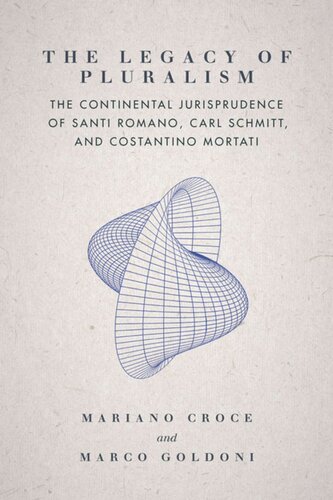

Most ebook files are in PDF format, so you can easily read them using various software such as Foxit Reader or directly on the Google Chrome browser.
Some ebook files are released by publishers in other formats such as .awz, .mobi, .epub, .fb2, etc. You may need to install specific software to read these formats on mobile/PC, such as Calibre.
Please read the tutorial at this link: https://ebookbell.com/faq
We offer FREE conversion to the popular formats you request; however, this may take some time. Therefore, right after payment, please email us, and we will try to provide the service as quickly as possible.
For some exceptional file formats or broken links (if any), please refrain from opening any disputes. Instead, email us first, and we will try to assist within a maximum of 6 hours.
EbookBell Team

5.0
98 reviewsHow should the state face the challenge of radical pluralism? How can constitutional orders be changed when they prove unable to regulate society? Santi Romano, Carl Schmitt, and Costantino Mortati, the leading figures of Continental legal institutionalism, provided three responses that deserve our full attention today. Mariano Croce and Marco Goldoni introduce and analyze these three towering figures for a modern audience. Romano thought pluralism to be an inherent feature of legality and envisaged a far-reaching reform of the state for it to be a platform of negotiation between autonomous normative regimes. Schmitt believed pluralism to be a dangerous deviation that should be curbed through the juridical exclusion of alternative institutional formations. Mortati held an idea of the constitution as the outcome of a basic agreement among hegemonic forces that should shape a shared form of life.
The Legacy of Pluralism explores the convergences and divergences of these towering jurists to take stock of their ground-breaking analyses of the origin of the legal order and to show how they can help us cope with the current crisis of national constitutional systems.